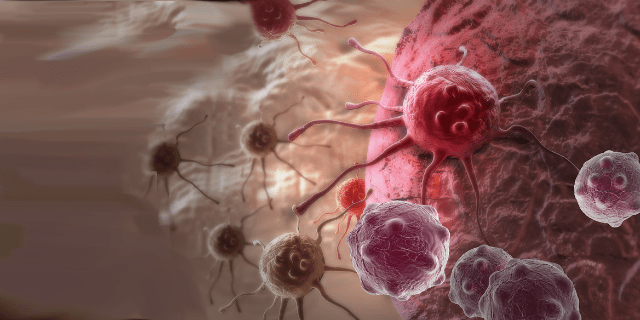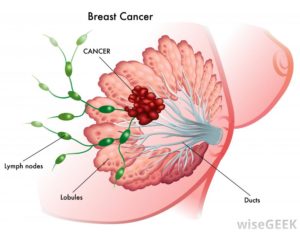
Diagnosed with Cancer? Your two greatest challenges are understanding cancer and understanding possible side effects from chemo and radiation. Knowledge is Power!
Learn about conventional, complementary, and integrative therapies.
Dealing with treatment side effects? Learn about evidence-based therapies to alleviate your symptoms.
Click the orange button to the right to learn more.
- You are here:
- Home »
- Blog »
- non-conventional therapies »
- Garlic Kills Breast Cancer
Garlic Kills Breast Cancer

“These staggering statistics call for effective strategies to reduce the incidence and development of breast cancer (BC)…”
I am a long-term survivor of a very different type of cancer than BC. I was forced to turn to evidence-based non-conventional cancer therapies because I exhausted all of the conventional therapies for my cancer. After two remissions and two relapses, I was told that “we can do nothing more for you...” That was in September of 1997.
The fact is that there are dozens of evidence-based non-toxic therapies that either reduce the risk of breast cancer or reduce the risk of a breast cancer relapse. I know this because many of these therapies are the same ones that have kept me in complete remission from my own “incurable” cancer since ’99.
- Long-term Cancer Survivor
- Cancer Coach
- Director PeopleBeatingCancer
Recommended Reading:
- Why a Cancer Coach?
- Chemo Brain Therapies in Breast Cancer
- Health Report: Breast Cancer and Chemicals
Can Eating Garlic and Onions Protect Against Breast Cancer?
“Previous studies have found evidence onion and garlic may help prevent prostate, lung, and gastric cancers, but there was previously no definite association found between these foods and breast cancer.
“Findings regarding the association of onion and garlic consumption with breast cancer have been inconsistent,” wrote study authors led by Gauri Desai, a PhD student in epidemiology at the University of Buffalo.
This joins other evidence that these foods may protect against prostate, lung, and gastric cancers as well. Studies in several countries including France, Mexico, and China found inverse associations between consumption and breast cancer risk, but others conducted in the Netherlands, Italy, and again in China found no such association.
Onions and garlic contain flavonols and organosulfur compounds which could contribute to anti-carcinogenic effects. These foods are important in the Puerto Rican diet, and are most commonly consumed in the form of a seasoning condiment known as sofrito.
The researchers conducted a population-based case-control study comparing garlic and onion intake, including in the form of sofrito, in 314 women with breast cancer and 346 controls.
Women with breast cancer were slightly older than controls at 58.7 years versus 54.1 years (P < 0.01). Compared to the controls, the women with breast cancer had a higher degree of education (P < 0.01), a lower BMI (P < 0.01), and fewer children on average (2.6 vs 2.9 children; P < 0.01). They also had a higher family history of breast cancer (P < 0.01).
For total garlic and onion intake, women in the highest tertile of consumption had an adjusted odds ratio (OR) for breast cancer when compared to the lowest tertile of 0.51 (95% CI, 0.30-0.87). For those in the medium consumption category, the OR was 0.59 (95% CI, 0.35-1.01). The trend across these groups was significant (P = 0.02).
When the cohort was stratified by menopausal status, some differences emerged. The OR for the highest consumption group compared with the lowest group among premenopausal women was 0.52 (95% CI, 0.19-1.40; P for trend = 0.17). Among postmenopausal women, though, the OR among the highest consumption group was 0.47 (95% CI, 0.24-0.91), and in fact the medium consumption group also had a significantly lowered risk compared to the lowest group, with an OR 0.49 (95% CI, 0.25-0.94; P = 0.07 for trend). The authors noted, though, that the study’s size does limit any interpretation of the stratified results.
“Our study provides evidence that the consumption of onions and garlic is associated with reduced risk of breast cancer,” the authors concluded. “Further prospective studies and clinical trials are necessary to evaluate the use of onions and garlic in breast cancer prevention.”


